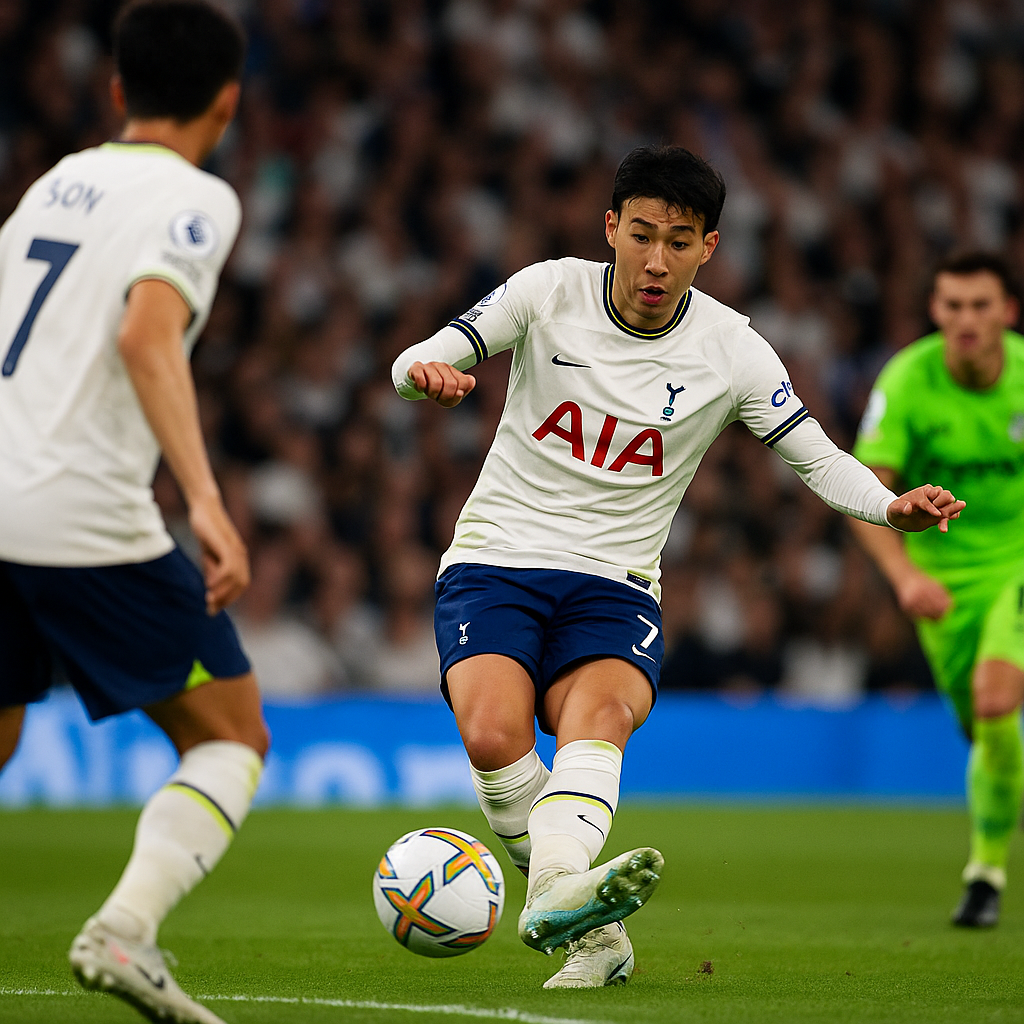| 최초 작성일 : 2025-09-16 | 수정일 : 2025-09-16 | 조회수 : 23 |

Son Heung-min, one of the world’s most recognized football stars, is often praised not only for his scoring ability but for his remarkable altruism on the pitch. Instead of chasing personal glory, he frequently chooses to pass, assist, and highlight his teammates’ success. This behavior has been widely acknowledged by fans, coaches, and global media, elevating his status as a true leader. Beyond football, his actions resonate with values of humility, cooperation, and respect—qualities increasingly rare in hyper-competitive sports. The Korean Star Project examines Son’s altruism through the lens of sociological and psychological theories such as symbolic capital, prosocial behavior, and leadership studies. His example challenges the conventional image of a star athlete defined solely by personal achievement, positioning him instead as a role model of collective success and moral leadership. Son embodies how altruistic behavior can shape both a team’s performance and broader cultural narratives.
When football fans around the world talk about Son Heung-min, the conversation often starts with his breathtaking speed, surgical finishing, or unforgettable goals in the Premier League. Yet those who follow him closely know that the true essence of Son lies elsewhere: in his willingness to pass the ball, celebrate his teammates’ success, and put the team’s glory above his own. In a sport where individual statistics often determine fame, Son’s reputation for altruism sets him apart as more than a striker—he becomes a model of leadership.
Sociology and psychology provide us with tools to interpret why Son’s actions resonate so deeply. Pierre Bourdieu’s concept of symbolic capital suggests that respect and admiration are earned not only through measurable achievements but through values embodied in action. Son’s unselfish style builds symbolic capital that no number of goals alone could guarantee. Similarly, theories of prosocial behavior in psychology explain how acts of generosity in competitive settings inspire trust and admiration, creating a ripple effect that strengthens group solidarity. Leadership studies also highlight the idea of servant leadership, where true leaders prioritize the growth and success of others—a framework that perfectly captures Son’s ethos on and off the pitch.
Recent headlines celebrated Son for scoring just 53 seconds into a match in the U.S., proving once again his sharp instinct in front of goal. But the stories that truly captivate global audiences are those when he chooses not to shoot. Fans recall countless moments when Son, in a position to secure personal glory, instead passed to a teammate for a clearer shot. In Tottenham’s crucial fixtures, his assists have often carried as much weight as his goals. International media such as The Guardian and ESPN have praised Son not just as a prolific forward but as a footballer who embodies “team-first” values in an era increasingly defined by star ego. Even among South Korean fans, there is a sense that Son represents national values of humility, collective spirit, and quiet perseverance. His on-field behavior mirrors the image of an older brother guiding those around him—firm yet generous, competitive yet compassionate.
Son Heung-min’s altruism is more than a personal trait; it has broader implications for leadership in sports and beyond. For young athletes, he demonstrates that recognition can come through empathy and support rather than dominance alone. For teams, his example highlights how unselfish players can build stronger cohesion and higher morale. For society at large, Son’s ethos resonates with workplaces and communities searching for leadership models that balance ambition with care. This also explains why Son has become a cultural bridge. His reputation as a generous leader elevates not only Korean football but also Korea’s image globally, transforming sportsmanship into a form of soft power. In times when public figures often stumble due to arrogance or selfishness, Son’s altruism feels like a refreshing reminder of values that bind people together across borders.
In the end, Son Heung-min’s legacy may not be measured solely in goals scored or trophies lifted but in the values he represents. His story teaches us that greatness does not come from overshadowing others but from lifting them up. By embodying humility, generosity, and service, Son rewrites what it means to be a leader—not just in football, but in life. As fans cheer his goals, they also admire the unseen choices he makes in those decisive moments: the passes, the smiles, the celebrations shared with teammates. Those choices whisper a larger truth—leadership is not about being first, but about ensuring no one is left behind. That is why Son Heung-min’s altruism shines as the foundation of true leadership.













